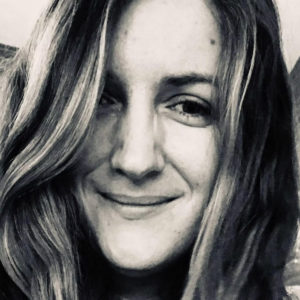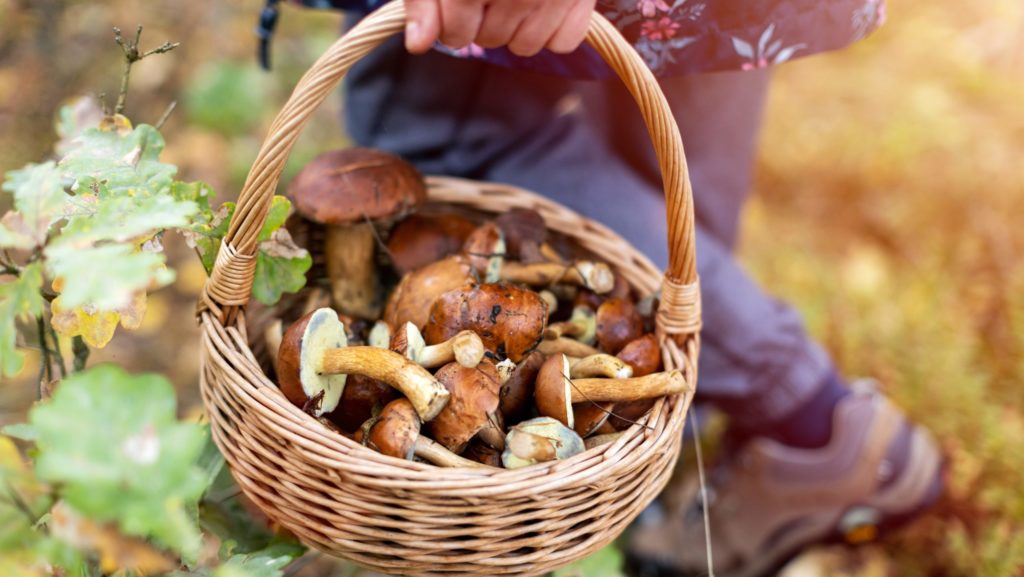Lent is upon us. Pray, fast, and give alms, saith the Lord.
Apropos of fasting, I recently read a food-based memoir that is about very much more than food.
Agata lzabela Brewer, author of “The Hunger Book: A Memoir from Communist Poland” (Mad Creek Books, $24.95), grew up in Lviv during the 1980s with a terrifying, unstable, alcoholic mother and a little brother whom she adored and protected. Now a professor at Wabash College, she lives in Indiana with her husband and (thoroughly Americanized) children. She also volunteers as a Court Appointed Special Advocate and is the founder and chair of the organization Immigrant Allies.
Back in Poland, her mother had survived the war, her father took off not long after his son was born, and Agata lived in constant fear — both of her physically and emotionally abusive mother, who regularly attempted suicide, and of being separated from her.
When she was 5 and little Tomek 3, they found their mother in bed one evening, seemingly comatose, stupefied by pills and vodka. Agata dressed her brother in his little winter coat, grasped his hand, and trudged with him 15 minutes through slushy snow to the haven of their maternal grandparents to report: “Mama won’t wake up.”
Another time, their mother caught the two up late coloring in their room, and — all too awake this time — made them stand shivering in their thin pajamas all night without moving.
Life in Poland at the time included food insecurity, martial law, poverty, Soviet bloc apartments, and crime. Still, there were allotment gardens and makeshift vegetable stands with rutabagas, beets, and carrots to be eaten raw, cooked, pickled, and fermented. Cheese, bread, dumplings, and home-brewed vodka and wine abounded.
Plus, the entire country of Poland is mad, it turns out, for mushroom gathering. Whole families took off to their favorite secret spots, laden with baskets, buckets. and small sharp knives to cut stems. Children were versed, practically before they were weaned, in which kinds were poisonous, which especially coveted.
Some of Brewer’s most cherished childhood memories are of mushroom-gathering in the woods with her mother: cigarette in one hand, bucket in the other, for once absorbed and happy.

Brewer includes a few recipes, but these are hardly for the upscale gourmand. One is for Polish potato dumplings: potatoes, eggs, flour, salt; another for żurek: fermented rye soup. A whole chapter is devoted to lard.
But while food is a thread that runs throughout — the lack of it; the unbounded joy and relief when food was available; the sustaining memories of shared meals, smells, foraging, stretching, and making do — this is really a book about the aching, unquenchable human longing for love, and in particular for Brewer’s anguished longing for the love of her mother.
There were 12 or 13 pysch ward commitments, countless rehabs, violence. More than once, she had to be cut down from the bathroom pipes where she’d tried to hang herself. But a child’s longing for motherly love transcends any kind of abuse, whether self-abuse or abuse of others.
She, Brewer, tries to understand. Was her mother a victim of generational war trauma? Was she born with a kind of alcoholic gene, hard-wired to derail her life and the lives of those around her? Was the underlying problem undiagnosed manic-depression?
Young Agata is saved by books, and by a stable, firm, and loving figure: her grandmother, who Brewer readily credits with saving her life. She clothed, fed, sheltered, and set boundaries with the children during the periods when their mother — her daughter — was incommunicado or unreachable.
“I lived in a gray world of totalitarian lack — of freedom, of hope, of basic necessities — but also in a wonderland of Grandma’s kitchen, with its tea-stained glasses and the earthy smell of gingerbread. As with our beloved mushrooms, my world was both toxic and life-giving, and I learned to navigate Mother’s land mines, to receive her blows, and to recover on Grandma’s lap, regaining strength to weather the next family crisis.”
When Brewer took her own walk on the wild side for several years as an angry and disaffected youth, her grandmother was always in the background: unconditionally loving but stern; steadfast, but also quick to point out the perils of hanging out with the wrong crowd, and to tout the value of education.
Still it’s the love of her mother — whose bizarre and profane behavior continued to shadow Brewer from across the ocean, who died at 60, who never apologized — for which she continues to hunger.
“Is it possible that if she had been transplanted into another world, perhaps one similar to my current relative comfort of regular bill payments, a fully stocked fridge, a small savings account for travel and movie nights, she would have managed her illness. Would she have loved us more?”
“My God, my God, why have you forsaken me?” cried Christ from the cross, thereby putting himself in solidarity for all time with every abused, neglected, abandoned child who similarly asks: Was it my fault? Could I have done something differently?
No. What we can do is share our stories, as Brewer has so bravely and generously done.
And we can try to cultivate the heart of that saving grandmother who surely stands, still, at the foot of the cross with Mary.

